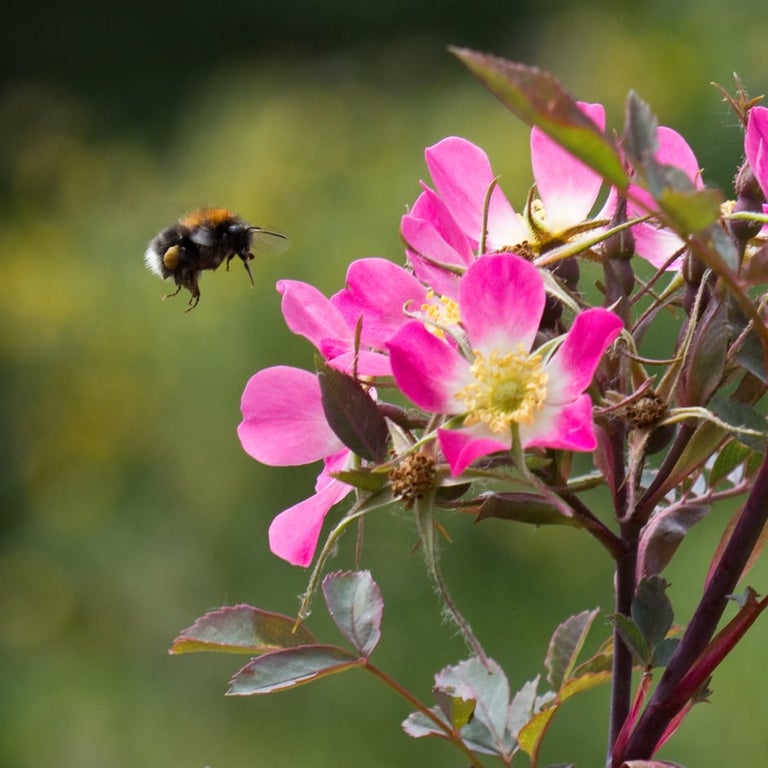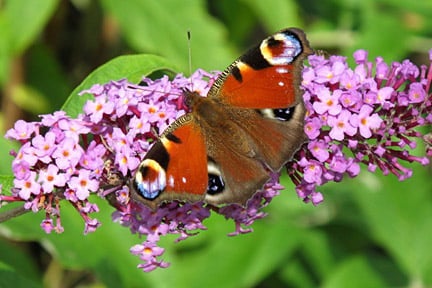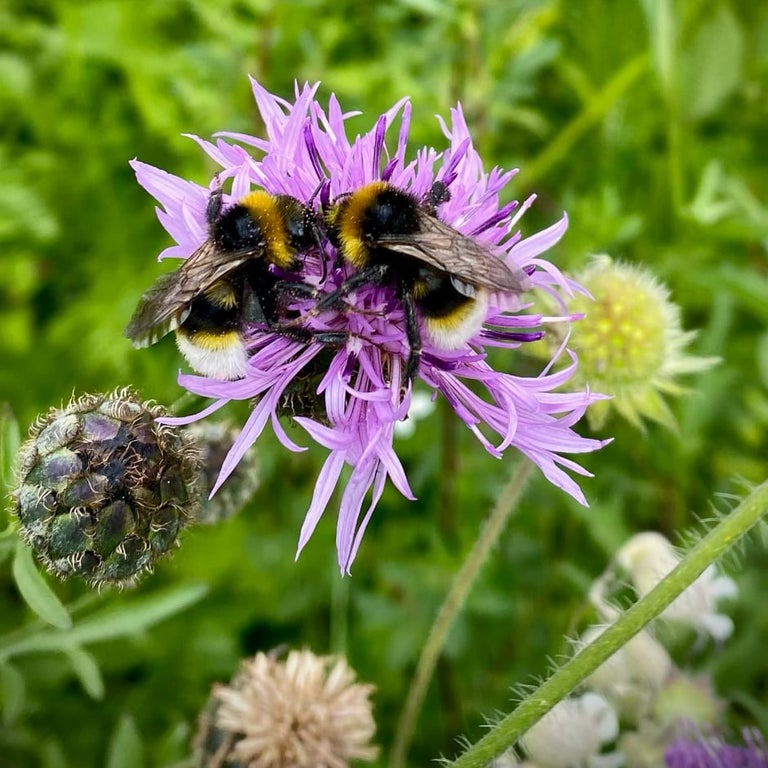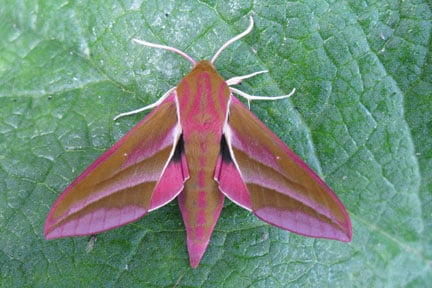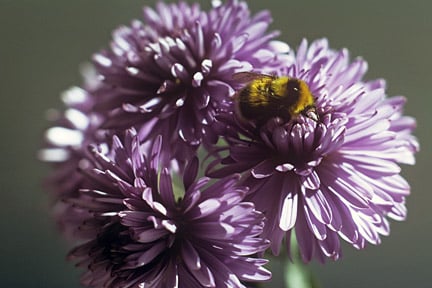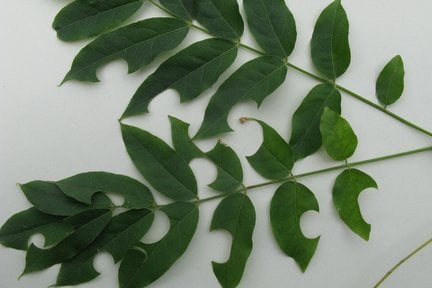
Quick facts
Common name - Leaf-cutting bees
Scientific name - Megachile species
Distribution - Widespread
Food - Nectar and pollen
What are leaf-cutting bees?
There are seven species of leaf-cutting bee in Britain. They have a wingspan of 8-14 mm and are dark brown bees covered in lighter brown or orange hairs.
Leaf-cutting bees are solitary bees, the females of which use leaf pieces to construct cells within their nests. They are active from late spring to late summer. The nest site may be a naturally occurring tunnel, such as a hollow plant stem, or it may make a tunnel for itself in rotten wood or dryish soil. Inside the nest the leaf pieces are manipulated to form a thimble-like structure, which is then provisioned with a mixture of nectar and pollen. When sufficient food has been gathered the female bee lays a single egg on the stored food and then proceeds to cap the cell with circular pieces of leaf. This process is repeated until the nest may contain about 20 larval cells.

Signs you have a leaf-cutting bee
The female bee uses her jaws to cut a section of leaf from the foliage of plants, in gardens often roses, and then flies back to the nest site with the piece of leaf slung between her legs. In some cases many leaves on a plant can have sections taken out of them, however, this does not usually affect the health of the plant. The plant tissue sections removed are roughly semi-circular, neat edged and uniform in size.
As well as in dry plant stems and cavities in wood, some species will use ‘bee hotels’ and nests are sometimes found in other places such as dry soil in plant pots and in wall cavities.
Management
Leaf-cutting bees are fascinating pollinators and a valuable part of garden wildlife, the leaf sections taken during the collection of nest material does not usually affect the vigour of plants. They should not be 'controlled'.




